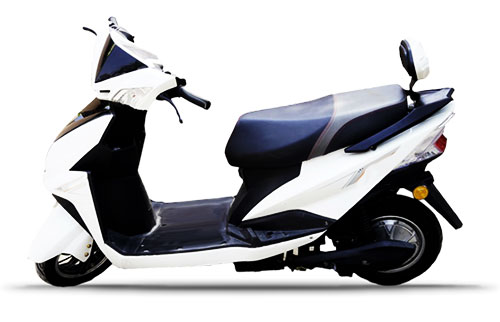Water safety rules
Water doesn’t like to joke: safety rules on the water. Most accidents are caused by violations of the rules for a safe stay on the water. Many do not even have a basic idea of how to behave on the water and what you need to have with you in the boat. To generate the various names for boats, ships use an online ship name generator.
ankara rus escort
ankara escort
ankara escort
etlik escort
eve gelen escort
gaziosmanpaşa escort
keçiören escort
kızılay escort
kolej escort
maltepe escort
mamak escort
otele gelen escort
rus escort
sincan escort
türbanlı escort
tunalı escort
yenimahalle escort
ankara ucuz escort
bahçelievler escort
balgat escort
batıkent escort
beşevler escort
çankaya escort
cebeci escort
çukurambar escort
demetevler escort
dikmen escort
elvankent escort
emek escort
eryaman escort
etimesgut escort
Everyone is obliged to follow the rules of conduct on the water because it is much easier to prevent an accident than to liquidate an emergency.
After receiving the documents for driving a boat, you need to learn the “Rules of Navigation on Inland Waterways” and know at least the basics of navigation, for example, what color should be a navigational passage, indicating a shallow, and what – a buoy. Remember: a boat rushing at high speed, if basic safety rules are not followed, can be dangerous for swimmers and fishermen. For note, using an online boat name generator, you can generate various names.
Before you decide to carry out your first or next to water route, you should refresh your memory of the rules for staying on the water and make sure that the boat and equipment are absolutely safe.
First of all, ensure your own safety, otherwise, you will not be able to provide any help to others:
- Swimming lessons will save your life. You should not go on a water trip if you do not have swimming skills. If a person does not know how to swim, he risks drowning even on a safe city body of water, not to mention long voyages.
- Do not drink alcohol, as you risk losing your sense of danger, the reaction may be disturbed, which can cause an accident.
Forbidden:
- go sailing on an incompletely equipped or faulty floating facility;
- when boarding, do not get on the side or seat of the boat, swing it, put your hands overboard;
- overload the floating craft in excess of the established norm for this type of boat;
- to drive a boat while intoxicated;
- sail on small boats at night and fish from boats at night;
- go out into a storm or fog;
- ride near locks or dams, stop under or near bridges;
- swim without life-saving equipment;
- ride in crowded places on the water (on beaches, ferries, water sports).
What you need to take care of before going out on the water
Before entering the water space:
- each time check the boat for integrity and safety, make sure that the radio and navigation gadgets are working – this will help to avoid unforeseen situations with a breakdown in the middle of the sea or ocean, where there will be no one to offer help;
- be aware of the weather conditions in your area – the weather forecast usually provides information about the strength and direction of the wind, there are storm warnings, but forecasts are not always accurate, so you need to learn how to independently determine whether changes by tides, cloudy skies, and other physical signs;
- be sure to stock up on life jackets – in the event of an accident, jackets can save your lives by preventing drowning, and the vest must be worn on each crew member, and not lie in the boat littered with other things;
- Before going out on the water, especially on someone else’s boat, it is necessary to clarify what unsinkable tanks are on it, as well as means for rescue (there should be one lifebuoy for each person, especially on a metal boat).
Do not forget that children under 16 can only be accompanied by an adult. Before setting off on a voyage, it is better to bring along an assistant who can replace you in case of unforeseen circumstances or an emergency. Such a person should be able to steer the boat if, for whatever reason, you are unable to do so.
How to behave on board?
When the motorboat is moving, you must firmly rest your feet on its sides, and hold on to the boat with any freehand – so in the event of a sudden unforeseen maneuver at high speed or in a collision, you will not fall out of the boat and get injured.
The driver on a boat with steering or transom control must wear an emergency lanyard on his wrist, which is connected to the emergency shutdown button of the running engine – in case of falling overboard, you can quickly turn off the engine so as not to be crippled by the working propeller. In addition, it will be easier to swim to the boat, because it will not go far, but will float with the stream next to you.
It is necessary to clearly know the actions when the boat hits, turns over, or is filled with water. If you need to get into the boat from the water, then you need to do this only from the stern or bow, so as not to overturn it. In the event that the boat capsizes. It is better for all passengers to hold on to it in order to push the boat out into shallow water or to the shore with joint efforts.
Remember: the anchor must be in the cockpit. Even in light winds, the boat should be anchored so that it is facing the wind, towards the wave.
The boat must have powerful lights or at least headlamps for all crew members. On the belts of all those present on the boat should be:
- a sheathed knife – will help in some critical situations (for example, to get rid of gnats, etc.);
- waterproof matches;
- walkie-talkie or telephone in a waterproof package.
Don’t panic!
The main reason for the occurrence of tragedies on the water is panic. Never and under no circumstances give in to panic!
If a person is drowning:
1) throw a lifebuoy or a floating object to the victim and try to call for help;
2) when swimming to a drowning person, take into account the flow of the river;
3) if the drowning person for some reason cannot control his actions, swim up to him from behind. Try to gently grab him by the head or arm, turn his face up, swim to the boat, or tow him to the shore;
4) provide first aid, eliminate oxygen deficiency by applying resuscitation measures.
Beware of heatstroke, hyperthermia, do not allow heat fatigue:
- drink more liquid;
- wear hats;
- try to acclimatize a week before going out on the water if you arrive in a different climatic zone.
Going on a voyage, it will not be superfluous to warn your friends or relatives about this so that they are aware of your trip. It is worth knowing in advance the phone numbers of the rescue service. As well as determining the location of the nearest rescue station.










Leave a Reply